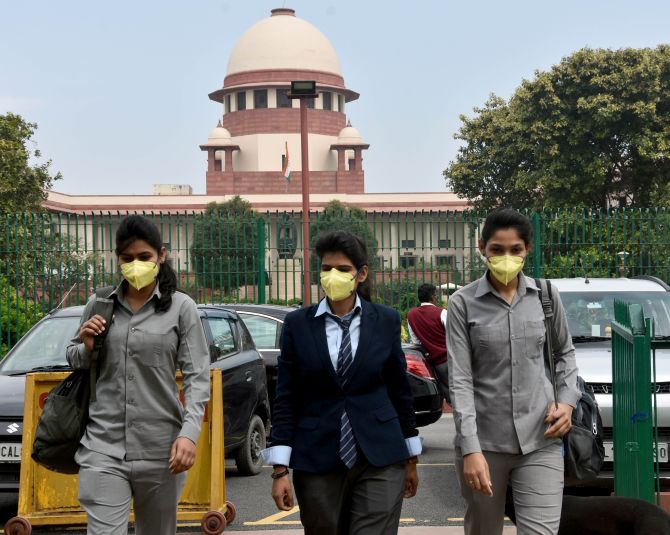The Supreme Court on Monday refused to entertain a plea seeking quashing of the decision to set up the PM CARES Fund, where people can donate money, to deal with the situation arising out of the COVID-19 pandemic.
A bench headed by Chief Justice S A Bobde described the public interest litigation filed by lawyer M L Sharma as ‘misconceived’ and dismissed it in a hearing conducted through video conferencing.
The bench, which also comprised justices L Nageswara Rao and M M Shantanagoudar, did not agree to the contention of the lawyer that the fund has been created without following the schemes enumerated under Articles 266 and 267 (which deal with the contingency and the Consolidated Funds of India) of the Constitution.
On March 28, the Centre set up the Prime Minister’s Citizen Assistance and Relief in Emergency Situations (PM CARES) Fund with the primary objective to deal with any kind of emergency situation like the one currently posed by the COVID-19 outbreak and provide relief to those affected.
The prime minister is the ex officio chairman of the fund and the defence, home and finance ministers are its ex officio trustees.
‘That cause of action arose to the petitioner on March 28, upon having press release for the formation of impugned PM CARES Fund and appeal by the Prime Minister of India to donate funds in that trust to fight COVID-19 and aid healthcare in future without any ordinance and gazette notification by the government of India,’ the PIL had said.
The plea had made all the trustees of the fund as well as the prime minister parties to it and had sought a transfer of the donations received so far in the fund to the Consolidated Fund of India, besides a court-monitored Special Investigation Team (SIT) probe into the setting up of the fund.
It said the trust had to be created in accordance with Articles 267 and 266(2), which deal with the contingency and the Consolidated Funds of India, of the Constitution.
‘Impugned trust has not either been created by Parliament/state legislator within Article 267. It is neither passed by Parliament nor approved by the President of India. There is no ordinance/gazette notification in this regard,’ the PIL had said.




